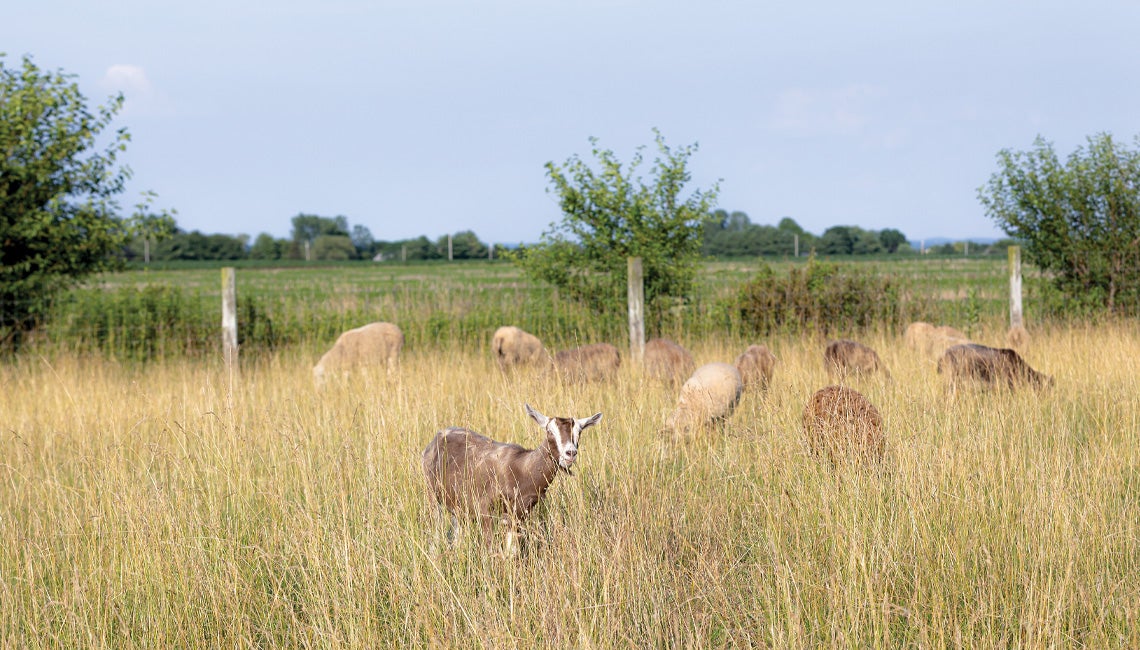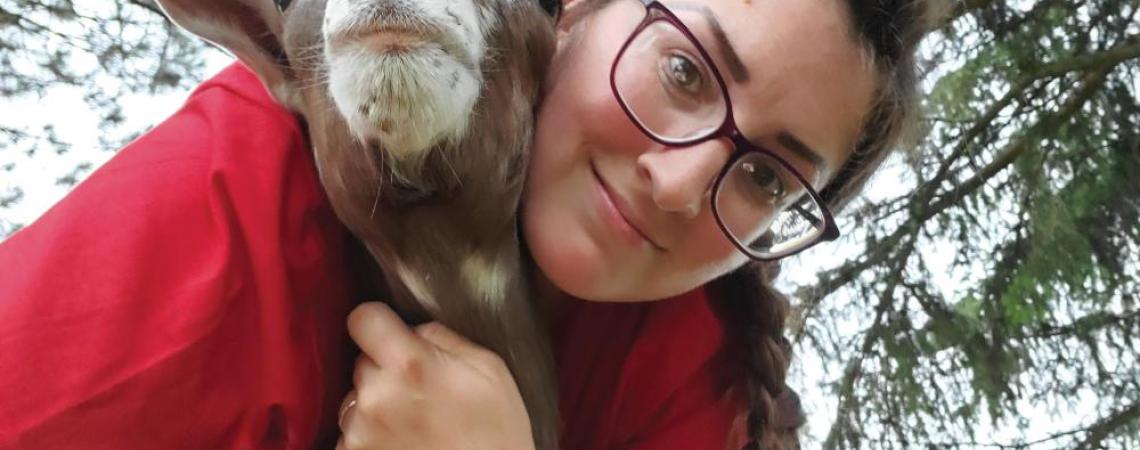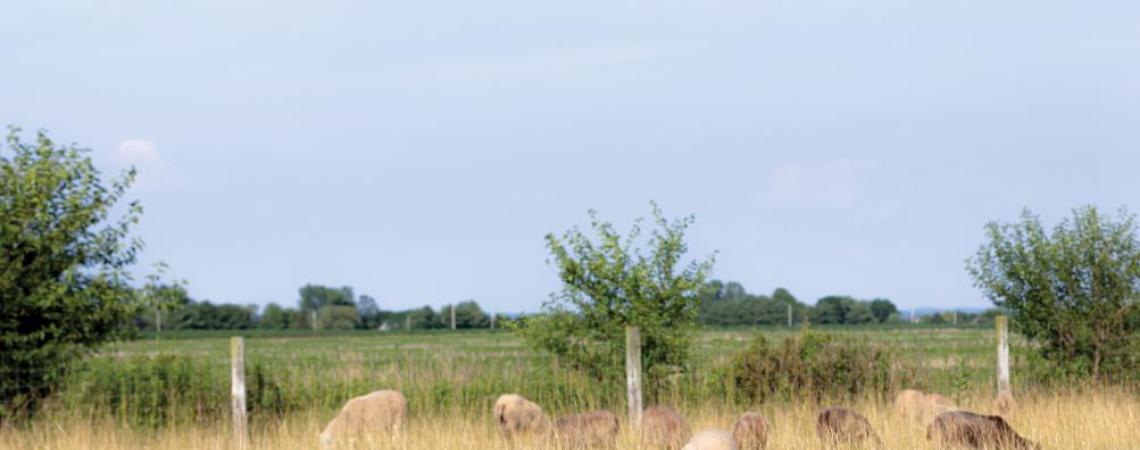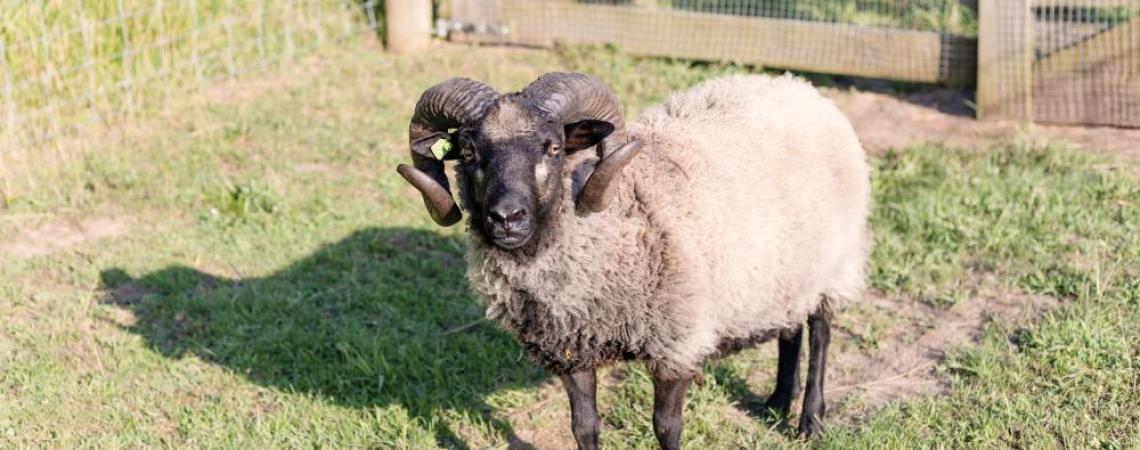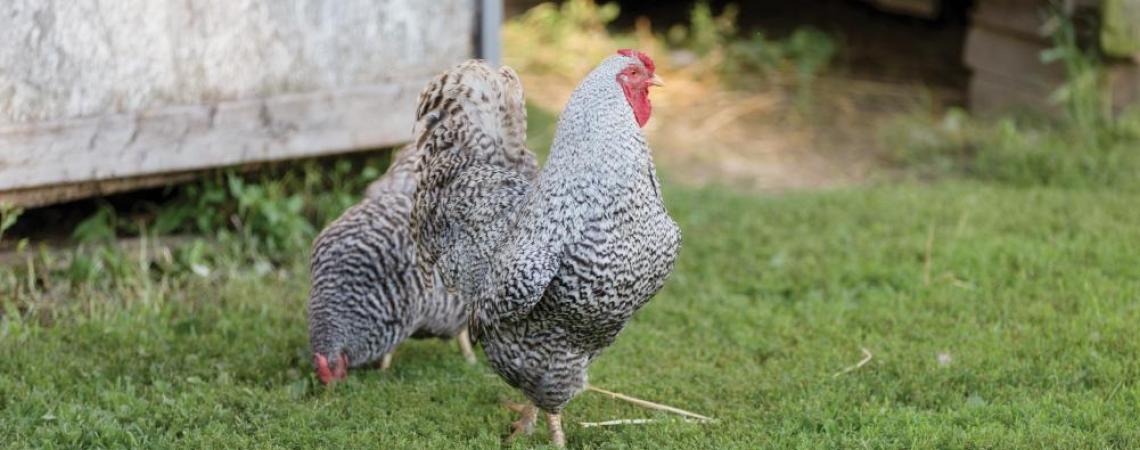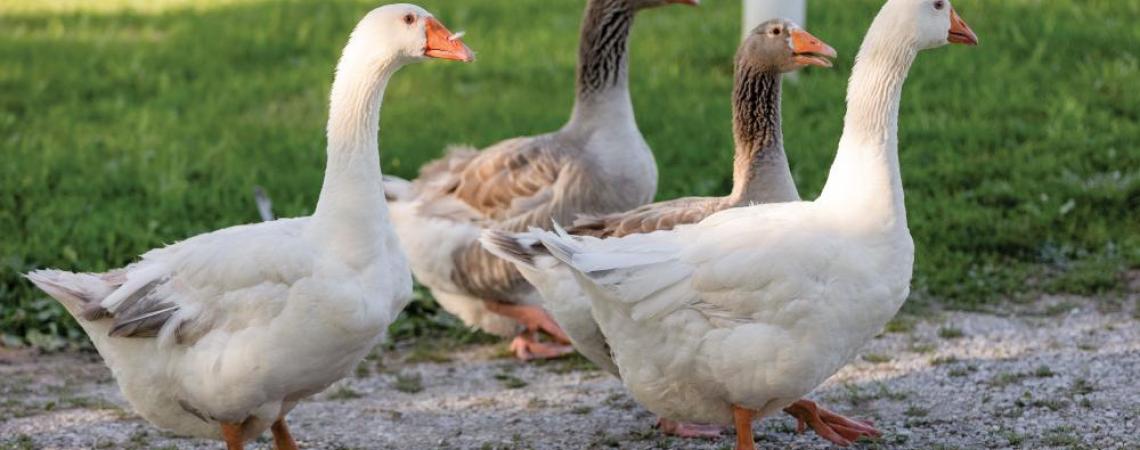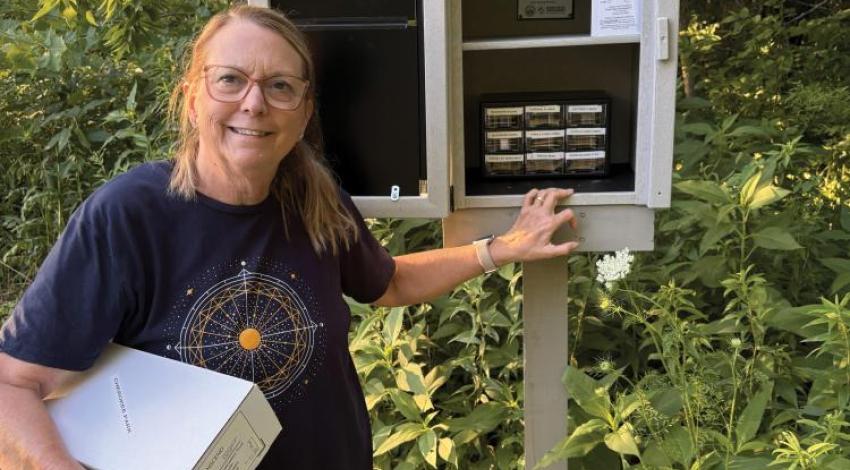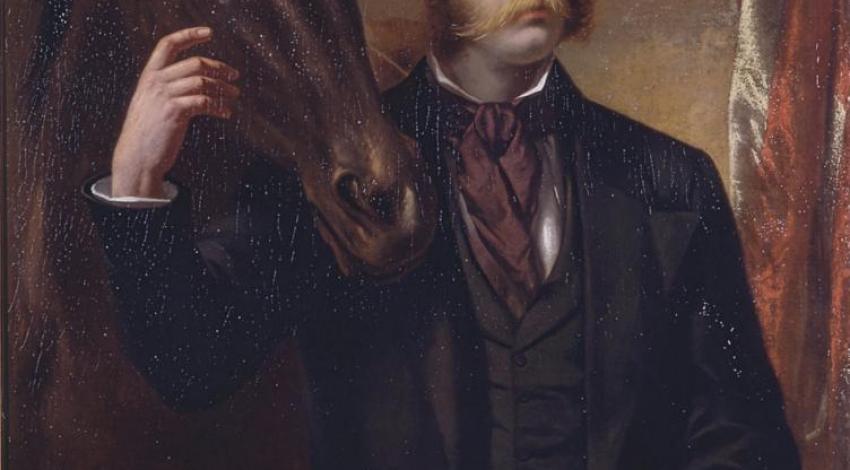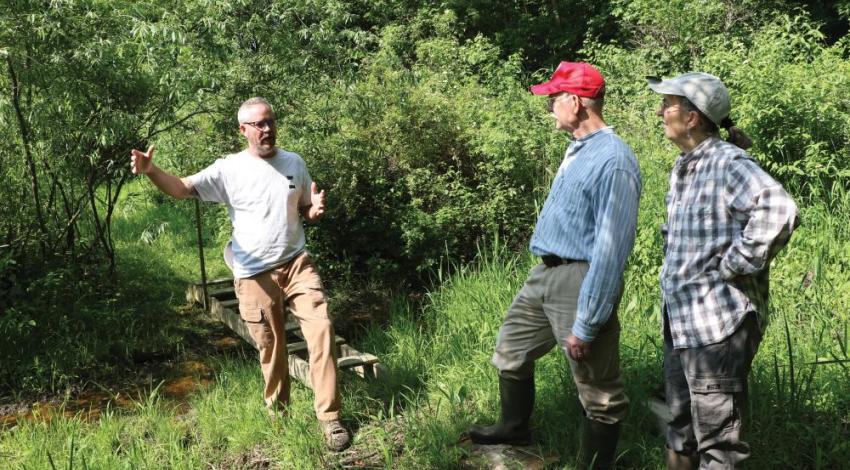Rachel LaRue grew up in the suburbs of Columbus, an area not generally thought of as “farm country.” Despite that, she says, she was involved in 4-H and “I always wanted to have a homestead with animals.”
So while her pathway to farming may not have been typical — she earned a degree in chemical engineering from Ohio University and still works as a chemical engineer — she’s living the life she loves on her Fleece and Feather Farm in Ashville, where she’s a member of Lancaster-based South Central Power Company.
But she says it was only a fluke that led her to become a member of the Livestock Conservancy.
While growing up in the suburbs, Rachel LaRue always knew she wanted to live on a farm with animals.
That organization, based in Pittsboro, North Carolina, keeps track of rare breeds of sheep, horses, cattle, chickens, and other types of livestock — researching populations of dozens of breeds and rating their viability from “critical” (fewer than 100 annual U.S. registrations) to “recovering” (over 2,500 annual U.S. registrations, but still in need of monitoring).
There are 77 Livestock Conservancy members in Ohio. LaRue got her start when she moved to her farm in 2018 and decided to acquire chickens as her first kind of livestock. She replied to an ad she found on Craig’s List for a seller who bred show-winning Dominique chickens.
He patiently explained to LaRue why he chose the heritage breed. “Dominiques are America’s oldest chicken breed,” LaRue says. “They came here from England with the Pilgrims.”
The Livestock Conservancy puts Dominiques in its “watch” category, meaning there are fewer than 2,500 annual registrations in the U.S. LaRue, who serves as secretary of the Dominique Club of America, keeps a flock of 20 Dominiques, including two roosters. “I use them primarily for eggs, but they are suitable for meat, too,” she says. She has found her chickens to be “super-hardy, smart, easy to keep, great mothers. They’re friendly and gentle around people, even the roosters.”
She says that people would be surprised “how hardy heritage breeds are. Even the first-time mothers are so protective of their babies. They’re very resilient against parasites. They’re not labor-intensive and they’re self-sufficient.”
Not long after, LaRue fell in love with Shetland sheep — a breed that goes back over a thousand years in Ireland and Scotland — when she saw the beautiful fleeces of their wool. Shetlands are a smaller sheep breed and provide both wool and meat, and LaRue has since learned to spin, crochet, weave, and knit. She currently serves as secretary of the Fine Fleece Shetland Sheep Association.
The Livestock Conservancy also puts the Shetland on its watch list, and LaRue’s Shetland flock numbers 53, including two rams, which come from four different bloodlines. She selectively breeds for horned ewes, a less common trait within the rare breed.
LaRue says her sheep are friendly and follow her around like dogs do. “They will do anything for a treat. They are like pets, but being a wild-raised breed, not domesticated, they have a bit of a wild streak.”
LaRue’s third heritage livestock breed is her geese — four Pilgrims, a breed that the Livestock Conservancy classifies as threatened, with fewer than 1,000 annual registrations in the U.S. “Their primary purpose is serving as a predator deterrent for the chickens,” LaRue says. “They’ll go after a raccoon or a possum.”
Besides helping to preserve heritage livestock breeds, LaRue is proud that her farm has earned the Animal Welfare Approved certification from A Greener World. The label means that the animals are raised by the highest humane and sustainable farming methods.
The other livestock residing at Fleece and Feather Farm are not of heritage breeds. The Toggenburg dairy goats provide milk for drinking and making cheese (she also makes soap with it). Her guinea fowl “are great for tick control, and they act as watchdogs. They’re mostly quiet, but they sound the alarm if a hawk or a delivery truck arrives.”
For more information about the Livestock Conservancy, visit https://livestockconservancy.org.
CORRECTED: An earlier version of this story incorrectly reported that Rachel LaRue is secretary of a different national Shetland sheep organization.
